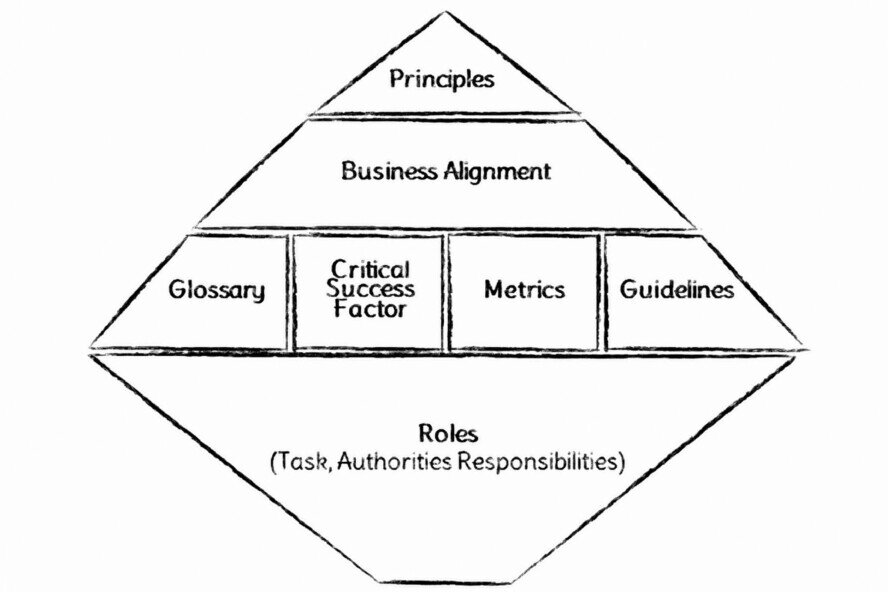Commitment amplifier
Commitment amplifier describes three crucial starting points for identifying and self- obligation of people regarding a strategy, activity, or similar. Assumed that people who accept something (commit themselves) create better results than without commitment. Contrary to motivation that comes from outside, commitment is developed within each individual. Therefore, commitment can only be reinforced with indirect measures. The following model creates the framework for these measures.
The commitment amplifier consists of the following three areas: form, content, and person.

- Form
The form consists of all formal aspects that are the basis for daily work and influence commitment positively. This includes mainly governance (i.e., primarily the guidelines for co-operation), organizational structure (i.e., description of the structural organization with its roles and the respective task, authority, and responsibility), guidance (e.g., the leadership system, including leadership style, evaluation and remuneration systems) and sponsoring (i.e., essentially training and HR-development programs). These common descriptions offer the target group an explicit framework for personal examination and, in a positive case, for commitment. The core task is the documentation of the area and its basic conditions.
- Content
Content enables the design of topic-oriented aspects that facilitate the target group's commitment - from enterprise to individual tasks. Essential elements are attractiveness (e.g., an interesting job), variety (e.g., different proposals and areas of work), and status (e.g., the reputation of a function), and challenge (e.g., innovation, change, personal advancement). Content creates the basis for the commitment by positive associations and personal links. It is a pre-requisite for content-related measures to know the target audience and their expectations. Based on this knowledge, tasks, goals, or projects can be developed.
- Person
The person affects mainly the coaching of individual people concerning their traits and organizational integration to achieve a positive commitment. Essential components are self-efficacy (i.e., perceived authority and internal control conviction), self-worth (e.g., self-concept, - respect, and -trust), satisfaction (concerning organizational integration, context, development opportunities), and justice (e.g., fairness, equal rights, legal security). The personality subconsciously affects all activities and creates a commitment from "gut feeling" and is prone to injuries. All forms of coaching can be suggested, e.g., personal, team-oriented, and organizational development.

